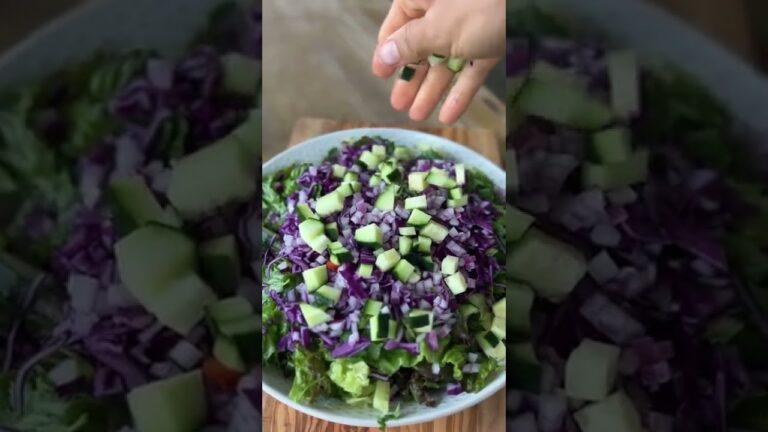Unlock the Power of Your Plate: How Diet Influences Dental Health
Welcome to our deep dive into how what you eat impacts your dental health. It’s not just about brushing and flossing—your diet plays a pivotal role in keeping your teeth strong and healthy. In today’s blog, we’ll explore the essential connection between diet and dental health and uncover the foods that can naturally strengthen your teeth.
Ever wondered why some people boast a flawless smile well into their later years? While genetics and good oral hygiene are part of the story, their secret weapon might just be their diet. The phrase “you are what you eat” is never truer than when talking about dental health. Foods rich in certain nutrients can fortify tooth enamel, fight plaque, and even freshen breath. Conversely, poor dietary choices can lead to cavities, gum disease, and other oral health issues.
As we unpack the best foods for dental health, we’ll highlight how integrating these items into your daily meals can lead to not just stronger teeth, but also a healthier body overall. From crunchy carrots to refreshing dairy products, get ready to revamp your eating habits in a way that your teeth will thank you for!
Join us as we bite into the science behind diet and dental health, offering you practical tips and delicious suggestions to enhance your oral care regimen through nutrition. Whether you’re looking to overhaul your diet or simply tweak it, you’ll find valuable insights here that will help you maintain that sparkling smile.

Key Takeaways
- Calcium-Rich Foods: Consuming foods high in calcium, like dairy products and leafy greens, helps strengthen tooth enamel and support bone density around your teeth.
- Crunchy Fruits and Vegetables: Eating crunchy fruits and vegetables such as apples, carrots, and celery can help clean teeth naturally and stimulate saliva production, which protects against cavities.
- Vitamin D Sources: Vitamin D is crucial for oral health as it enhances calcium absorption. Sources include sunlight exposure, fatty fish, and fortified foods.
- Avoid Sugary Snacks: Reducing sugar intake is vital as sugar fuels bacteria that produce harmful acids in the mouth, leading to tooth decay.
- Phosphorus-Rich Foods: Foods containing phosphorus, like eggs, fish, and nuts, play an essential role in maintaining strong teeth by supporting calcium in rebuilding enamel.
- Water Intake: Drinking plenty of water, especially after meals, helps wash away food particles and bacteria, thus reducing the risk of cavities and gum disease.
- Limit Acidic Beverages: Beverages like soda, coffee, and citrus juices can erode tooth enamel over time. Opt for water or milk instead to preserve dental health.
Introduction to the Importance of Diet for Dental Health
The food we consume daily plays a pivotal role in maintaining not only our overall health but particularly our dental health. Understanding how diet impacts the health of our teeth is crucial for anyone looking to enhance their oral hygiene and prevent dental issues.
How Diet Affects Dental Health
The connection between diet and dental health is profound. Foods and beverages directly interact with the bacteria present in our mouths. Consuming sugar-rich foods, for example, can lead to the formation of acids that attack the tooth enamel, which is the protective outer layer of our teeth. This process, known as demineralization, can eventually lead to cavities and other dental problems. On the other hand, certain foods contain key nutrients that support tooth health, reinforcing the enamel and reducing the risk of decay.
Nutrition and Oral Health
There’s a significant relationship between the nutrients we ingest and the condition of our oral cavity. Essential nutrients like calcium, phosphorus, and vitamins D and C play a crucial role in maintaining dental health. Calcium and phosphorus are vital for strengthening the enamel, while vitamins help fight off infections and inflammation in the gums. A deficiency in these nutrients can lead to weakened enamel, making teeth more susceptible to decay and gum disease.
Choosing the Right Foods for Strong Teeth
- Dairy Products: Items such as milk, cheese, and yogurt are excellent sources of calcium and phosphates which help to remineralize teeth.
- Crunchy Fruits and Vegetables: Apples, carrots, and celery can help clean teeth and freshen breath. They increase saliva flow, which plays an essential role in neutralizing the acids produced by bacteria in the mouth.
- Leafy Greens: Spinach, kale, and other leafy vegetables are high in calcium, folic acid, and numerous other important vitamins and minerals that promote oral health.
- Nuts and Seeds: Almonds, sunflower seeds, and sesame seeds are packed with calcium and phosphorus which are vital for protecting enamel.
By choosing the right foods, you not only nourish your body but also fortify your dental health, ensuring your teeth remain strong and healthy. Incorporating a variety of nutrient-rich foods into your diet can make a significant difference in the longevity and health of your teeth and gums. Thus, understanding the impact of dietary choices on oral health is fundamental for anyone aiming to maintain a healthy, vibrant smile.
Key Nutrients That Promote Dental Health
Maintaining a healthy smile goes beyond daily brushing and flossing. Incorporating specific nutrients into your diet can significantly enhance dental health. Here’s a look at essential vitamins and minerals that play a crucial role in keeping your teeth and gums healthy.
Calcium: Strengthening Tooth Structure and Enamel
Calcium isn’t just important for bones; it’s also vital for your teeth. It helps harden your enamel and strengthen the bone that holds your teeth in place. Dairy products like milk, cheese, and yogurt are excellent sources of calcium. For those who prefer plant-based options, almond milk, leafy greens, and tofu are beneficial as well.
Phosphorus: Partnering with Calcium for Dental Health
Phosphorus works closely with calcium to maximize the strength and durability of your teeth. Together, they help protect and rebuild tooth enamel. Foods rich in phosphorus include fish, pumpkin seeds, and lentils, making them great additions to your dental health diet.
Vitamin D: Enhancing Calcium Absorption
Vitamin D plays a critical role by enhancing calcium absorption, which is essential for optimal dental health. Without sufficient vitamin D, your mouth’s ability to manage calcium is compromised. Sources of Vitamin D include sunlight exposure, fortified cereals, and fatty fish like salmon and mackerel.
Vitamin C: Crucial for Gum Health and Collagen Production
Vitamin C is indispensable when it comes to gum health. It helps in the production of collagen, a key protein that helps maintain the integrity of your gums. A deficiency in Vitamin C can lead to bleeding gums and gingivitis. Citrus fruits, strawberries, and bell peppers are packed with this vital nutrient.
Vitamin A: Maintaining Healthy Mucous Membranes
Last but not least, Vitamin A is essential for the maintenance of mucous membranes in the mouth. It helps keep your gums healthy and ensures your mouth’s linings are robust enough to combat bacteria and infections. Carrots, sweet potatoes, and kale are excellent sources of Vitamin A.
Integrating these nutrients into your daily diet can lead to stronger teeth and healthier gums. Remember, while a good diet can greatly improve dental health, it’s also essential to maintain regular dental check-ups and proper oral hygiene practices.
Specific Foods That Strengthen Teeth
Maintaining strong, healthy teeth is crucial for overall well-being, and what we eat plays a significant role in dental health. Specific foods can help to fortify your teeth naturally, ensuring they stay healthy and robust.
Dairy Products
Dairy items such as cheese, yogurt, and milk are excellent for dental health due to their high calcium content. Calcium is vital for tooth strength, contributing to the remineralization of teeth enamel. Cheese, especially, helps in neutralizing acid in the mouth, reducing the risk of tooth decay.
Leafy Greens
Leafy greens like spinach, kale, and collard greens are packed with vitamins and minerals, particularly calcium, which is beneficial for the enamel on the teeth. These greens also contain folic acid, a type of B vitamin that has numerous health benefits, including possibly treating gum disease in pregnant women.
Crunchy Fruits and Vegetables
Eating crunchy fruits and vegetables such as apples, carrots, and celery can be likened to a natural toothbrush. Chewing these crunchy foods helps in scrubbing away plaque and food particles from your teeth while stimulating saliva production, which combats bacteria and cleanses the mouth.
Nuts and Seeds
Almonds, sunflower seeds, and other nuts and seeds are great for your teeth. They contain healthy fats and proteins while being low in carbohydrates, which means they do not contribute much to tooth decay. They also provide essential nutrients like phosphorus and calcium, which help in repairing and strengthening tooth enamel.
Fatty Fish
Fatty fish like salmon and mackerel are rich in omega-3 fats and are a top choice for healthy teeth. Omega-3s are known to reduce inflammation, which can help to protect gums and other tissues from bacterial infections and periodontal diseases.
Including these nutrient-rich foods in your diet can lead to healthier teeth and gums, reflecting positively on your overall health. Regular consumption of these food items, combined with good oral hygiene, can significantly enhance your dental health.
Dietary Choices That May Harm Dental Health
Maintaining optimal dental health involves more than just brushing and flossing. What you eat plays a crucial role in keeping your teeth healthy or potentially harming them. Certain dietary choices can increase the risk of tooth decay, enamel erosion, and other dental problems.
Sugary Foods and Beverages
Consuming sugary foods and beverages is one of the leading causes of tooth decay. When sugar is consumed, it interacts with bacteria in the mouth to form acid. This acid attacks the teeth, stripping them of their natural minerals and causing decay. Popular sugary culprits include sodas, candies, and desserts. Reducing intake of these sugary temptations can significantly lower the risk of developing cavities.
Acidic Foods and Drinks
Not just sugary, but acidic foods and drinks can also pose a risk to dental health by eroding tooth enamel. Enamel is the hard, protective outer layer of your teeth, and once it wears away, it does not regenerate. Common acidic foods and beverages include citrus fruits, tomatoes, and carbonated drinks. Moderation and rinsing with water after consuming these can help mitigate their erosive effects.
Sticky Foods
Sticky foods are another dental hazard as they tend to cling to teeth longer than other types of food. This prolonged contact gives the bacteria in the mouth more time to feed on the sugars and produce decay-causing acids. Foods such as dried fruits, sticky candies like caramel, and even starchy chips can be problematic for dental health. Brushing or at least rinsing after eating these foods can help reduce their harmful impact.
Hard Foods
Biting down on hard foods can lead to physical damage to your teeth such as chips, fractures, or even breaks. Ice, hard candies, and unpopped popcorn kernels are common examples of foods that can cause damage when bitten with force. To protect your teeth, it is advisable to avoid using your teeth as tools to crack nuts or chew on hard objects.
Incorporating mindful eating habits and being aware of the types of foods and drinks that are detrimental to dental health can lead to better dental outcomes. Remember, every bite counts when it comes to maintaining a healthy smile!
Implementing a Tooth-Friendly Diet in Daily Life
Incorporating a Balanced Diet for Overall and Dental Health
Maintaining a balanced diet is not only crucial for your overall health but also plays a significant role in keeping your teeth healthy. Foods rich in calcium like milk, yogurt, and cheese, strengthen tooth enamel and help combat tooth decay. Also, crunchy fruits and vegetables such as apples, carrots, and celery can help clean teeth naturally by removing surface stains and plaque.
Tips for Moderating Harmful Foods While Enjoying Treats
While it’s okay to indulge in sweets and acidic foods occasionally, moderation is key to maintaining dental health. Try to limit the consumption of sugary treats and opt for healthier alternatives when possible. For instance, choose dark chocolate over milk chocolate or sugary candies, as it contains less sugar and is rich in antioxidants that are beneficial for gum health. Always remember to drink water after consuming acidic or sugary foods to help wash away sugars and acids from the teeth surfaces.
Daily Dental Care Tips to Complement a Tooth-Friendly Diet
Complementing your tooth-friendly diet with proper dental care routines is essential for optimal dental health. Brush your teeth at least twice a day using fluoride toothpaste to help reinforce tooth enamel and fight decay. Flossing daily is also critical as it removes food particles and plaque from between the teeth where a toothbrush can’t reach. Consider using an antimicrobial mouthwash to reduce bacteria and maintain fresh breath.
Regular Dental Check-Ups and Professional Advice on Diet and Oral Health
Visiting your dentist regularly for check-ups is vital to maintain dental health. A dentist can provide personalized dietary advice based on your oral health status and help you adjust your diet accordingly to prevent dental issues. Regular cleanings and exams allow dentists to catch problems early and keep your teeth and gums healthy.
By understanding the connection between what you eat and your dental health, and implementing these practical steps, you can enjoy a healthier smile and improved overall wellness. Embrace these changes gradually into your lifestyle for a lasting impact on your dental and general health.
Conclusion
In this blog post, we’ve explored how integral a nutritious diet is to maintaining optimal dental health. From understanding the foundational role of diet in dental well-being to identifying key nutrients that enhance tooth strength, it’s clear that what we eat profoundly impacts our oral health. Foods rich in calcium, phosphorus, and vitamins play a pivotal role in fortifying teeth, while sugary and acidic foods can undermine dental integrity.
Implementing a tooth-friendly diet isn’t just about avoiding harm; it’s about making proactive choices that benefit our overall health. Incorporating dairy products, leafy greens, and nuts into daily meals can help strengthen your dental framework, supporting a healthier smile. By making informed dietary choices, we not only protect our teeth but also contribute to our body’s overall well-being.
As we’ve seen, the journey to excellent dental health is a delicious one, filled with diverse and nutritious options. Embrace these dietary practices to keep your smile bright and healthy!




















